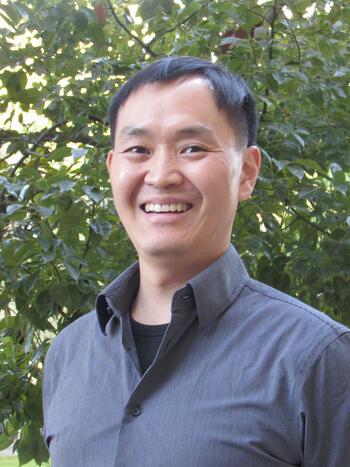For firms around the world, the question of how to harness Silicon Valley's innovation engine is increasingly important. The answers are not obvious, since the entrepreneurial dynamism and disruptive innovations and business models of Silicon Valley are often at odds with large firms' internal dynamics and processes. This is especially the case for firms that grew up outside Silicon Valley and began as outsiders here.
This panel brings together expertise from multiple vantages-- SAP from Germany, which has a major presence in Silicon Valley, World Innovation Lab (WiL) which works with large Japanese companies in a variety of ways, and Core Venture Group, a boutique San Francisco venture capital firm co-founded by a Japanese and our panelist with extensive experience working with Japanese firms.
Please join us to get both broad perspectives and specific insights into how large outside firms can harness Silicon Valley.
PANELISTS:
Joanna Drake Earl, General Partner, Core Ventures Group
Joanna has been creating next-generation digital experiences at the intersection of media and technology for over 20 years. Currently Joanna is a General Partner at Core Ventures Group, a seed stage technology start-up fund, investing in serial entrepreneurs who are solving big problems with advanced technologies. Until December 2012, Joanna served as Chief Operating Officer for DeNA West. She oversaw operations outside of Asia for this $5B Japanese public mobile content company, working closely with the Founder and Board of Directors on international expansion and global operations.
After joining Vice President Gore and Joel Hyatt to co-found Current TV in 2001, Joanna spent 11 years with the company including stints as President of New Media, pioneering the world's first social media platform, as well as Chief Operating Officer and Chief Strategy Officer, overseeing Sales, Marketing, Distribution, Technology, and International Operations. Earlier Joanna held executive positions at several leading technology and media start-ups, including MOXI and ReacTV. She started her career at Booz Allen & Hamilton in the Media, Entertainment and Technology consulting practice, working closely with the world's leading entertainment conglomerates and the largest Silicon Valley technology companies.
Gen Isayama, Co-Founder and CEO, World Innovation Lab
Gen is the CEO and Co-Founder of WiL, LLC (World Innovation Lab), an organization dedicated to accelerating and promoting open innovation in large corporations across Japan. Funded by enterprises from various industries, WiL provides investment capital and strategic guidance to Japanese startups entering the global market as well as overseas ventures entering the Japanese market. In addition, WiL incubates new businesses by leveraging unused IP and resources in large corporations, facilitating innovation and entrepreneurship. Born and raised in Tokyo, Gen joined IBJ (now Mizuho Financial Group) after graduating Tokyo University and moved to Silicon Valley in 2001 to attend Stanford Business School. After graduation, Gen joined DCM Ventures, one of the top-tier Silicon Valley venture capital firms, and worked as a partner until the summer of 2013.
Kenji Kushida, Research Associate, Stanford University
Kenji E. Kushida is a Japan Program Research Associate at the Walter H. Shorenstein Asia-Pacific Research Center and an affiliated researcher at the Berkeley Roundtable on the International Economy. Kushida’s research interests are in the fields of comparative politics, political economy, and information technology. He has four streams of academic research and publication: political economy issues surrounding information technology such as Cloud Computing; institutional and governance structures of Japan’s Fukushima nuclear disaster; political strategies of foreign multinational corporations in Japan; and Japan’s political economic transformation since the 1990s. Kushida has written two general audience books in Japanese, entitled
Biculturalism and the Japanese: Beyond English Linguistic Capabilities (Chuko Shinsho, 2006) and
International Schools, an Introduction (Fusosha, 2008). Kushida holds a PhD in political science from the University of California, Berkeley. His received his MA in East Asian studies and BAs in economics and East Asian studies, all from Stanford University.
David Swanson, Executive Vice President, Human Resources, SAP SuccessFactors
David Swanson has over 25 years of human resources management experience. He is currently the executive vice president of human resources for SAP SuccessFactors partnering with the company’s sales organization to showcase how SAP is using SAP HR. Most recently he was the CHRO for North America and prior to that the global head of HR for SAP’s products and innovation organization where he delivered the people strategy to drive business performance. In addition he has held executive human resources roles at a number of technology companies supporting global development, marketing, sales and service organizations.
Swanson is a keynote speaker and panelist on the Future of HR focusing on how HR can make an impact in the business through analytics and big data not just activity reporting. He is actively involved in the human resources community as a board member of the Bay Area Human Resources Executive Council (BAHREC), on the innovation advisory board of HULT the global business school, an adjunct lecturer with the University of California, Santa Cruz Extension, and a regular presenter and facilitator with the Society of Human Resources Management (SHRM) and the Northern California Human Resources Association (NCHRA).
AGENDA:
4:15pm: Doors open
4:30pm-5:30pm: Panel Discussion
5:30pm-6:00pm: Networking
RSVP REQUIRED






 Gaurav Kataria is a Big Data leader at Google who is responsible for driving Production Adoption initiatives across various Google for Work product lines - Gmail, Drive, G+, Hangouts, Google Docs, Drive, Android and Chrome. His group employs sophisticated machine learning and data mining techniques to understand the usage patterns across different products, and based on that creates programs to improve user engagement.
Gaurav Kataria is a Big Data leader at Google who is responsible for driving Production Adoption initiatives across various Google for Work product lines - Gmail, Drive, G+, Hangouts, Google Docs, Drive, Android and Chrome. His group employs sophisticated machine learning and data mining techniques to understand the usage patterns across different products, and based on that creates programs to improve user engagement.
